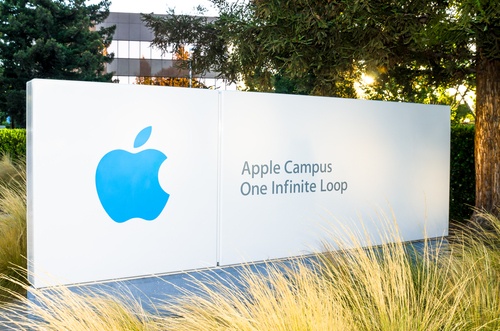Key Takeaways:
- Shares in Alphabet, Google’s parent company, dropped over 8% after Apple executive Eddy Cue testified in an antitrust trial.
- Cue revealed Google’s search traffic on Apple devices declined last month for the first time in 22 years.
- This decline is partly due to rising competition from AI chatbots like ChatGPT.
- Investors are worried Google’s advertising revenue could be threatened by these AI alternatives.
- The trial might force Google to lose its default search engine status on Apple devices.
- The case is part of a larger push by the U.S. government to regulate big tech companies.
Google’s Search Dominance Under Threat
In a surprising turn of events, Google’s parent company Alphabet saw its stock drop by more than 8% on Wednesday. This sudden decline followed testimony from Apple executive Eddy Cue during an antitrust trial in Washington. Cue, who oversees Apple’s services, revealed that Google’s search traffic on Apple devices fell last month. This is the first time this has happened in over two decades.
Why Did This Happen?
Cue explained that Google is losing ground to AI-powered chatbots like ChatGPT and Perplexity. These new tools are changing how people search for information online. For instance, instead of typing a query into Google, users might ask a chatbot directly. This shift has investors worried about Google’s future, especially since advertising revenue makes up a huge part of its business.
The revelation that Google’s search traffic dropped for the first time in 22 years sent shockwaves through Wall Street. Alphabet lost over $170 billion in market value in just one day. This highlights how seriously investors are taking the threat from AI chatbots.
The Ongoing Antitrust Trial
The testimony took place during a major antitrust trial that has been ongoing since 2020. The trial focuses on Google’s dominant position in the search engine market. The U.S. government accuses Google of unlawfully maintaining its monopoly by paying companies like Apple billions of dollars to remain the default search engine on their devices.
For example, Google pays Apple to be the default search engine on Safari browsers and iPhones. While this deal has been lucrative for both companies, regulators argue it stifles competition. The trial aims to determine what remedies should be imposed on Google. Options include forcing Google to divest its Chrome browser or sharing its search data with competitors.
Apple’s Role in the Trial
Eddy Cue’s testimony raised another red flag for investors. He suggested that Apple might soon offer AI-powered search alternatives as the default on its devices. This could further reduce Google’s search traffic and advertising revenue. The idea of losing Apple’s support is so concerning that Cue admitted he’s “losing sleep” over the potential consequences.
If the court orders Google to end its default search agreements, it could have a major impact on both companies. For Google, losing its default status on Apple devices would mean fewer searches and less ad revenue. For Apple, it could reduce the billions of dollars it earns annually from Google’s payments.
What’s Next for Google?
The trial is set to conclude on Friday, but the final ruling won’t come until August. Judge Amit Mehta will decide what remedies to impose on Google. Options include:
- End Default Search Agreements: Google might lose its status as the default search engine on devices like iPhones. This could force it to compete more aggressively for users.
- Share Search Data: Google might be required to share its search data with competitors, which CEO Sundar Pichai has warned could weaken its search business.
- Alternative Remedies: Google has proposed a compromise. It wants to continue paying for default placement of its search engine, but with more flexibility for smartphone manufacturers to choose which Google apps to install.
The Bigger Picture
This case is part of a larger effort by the U.S. government to regulate big tech companies. Google is already facing other antitrust challenges, including a recent loss in a case related to its ad technology business. Meanwhile, other tech giants like Meta, Apple, and Amazon are also under scrutiny.
The rise of AI chatbots like ChatGPT adds another layer of complexity to the situation. These tools are not only challenging Google’s search dominance but also creating new opportunities for competition. As the trial concludes, all eyes will be on Judge Mehta’s ruling and how it shapes the future of the tech industry.
In August, Judge Mehta’s decision could have far-reaching consequences. If Google is forced to end its default search agreements, it could lead to a more competitive search engine market. On the other hand, if the court sides with Google, it could give the company a much-needed lifeline in the face of rising AI competition.
One thing is clear: the tech landscape is changing rapidly, and companies like Google, Apple, and Meta will need to adapt to stay ahead. Whether through antitrust rulings or the rise of AI, the next few years will be pivotal for these industry giants.
The Road Ahead
As the trial comes to a close, the stakes couldn’t be higher. Google’s dominance in search is being challenged on multiple fronts. AI chatbots are changing user behavior, while regulators are pushing for stricter oversight. The outcome of this case will set a precedent for how big tech companies operate in the future.
For now, investors will have to wait until August for the final ruling. But one thing is certain: the era of unchallenged dominance for companies like Google may be coming to an end. The combination of antitrust pressure and AI innovation is creating a perfect storm that could reshape the tech industry forever.
